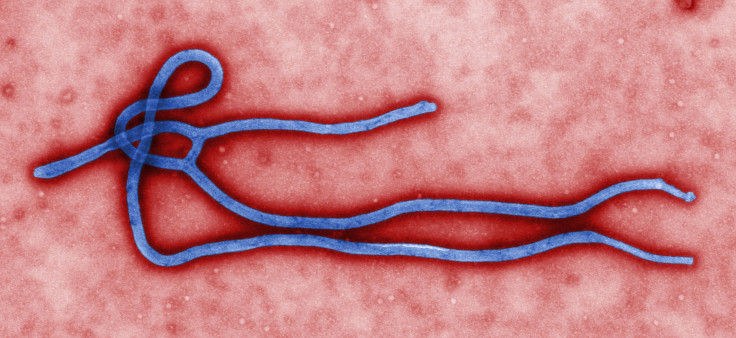Million-Dollar Fruit Bat Trade Could Be Spreading Ebola, UN Warns

Health officials are scrambling to control the Ebola epidemic that has already killed 632 people in Sierra Leone, Liberia and Guinea since February. Though their top priority is stopping people giving it to one another, they’re now looking to the forests to stem another possible route of infection.
On Monday that United Nations warned that people in some rural communities may be unknowingly spreading the Ebola virus by hunting and eating certain wildlife species. But the “bushmeat” industry is much more than a hobby. The underground trade is likely worth millions, and provides a necessary boost for families in the most impoverished areas.
“Bushmeat is an important resource in the livelihoods of many rural communities in sub-Saharan Africa and may be a crucial safety-net for the most vulnerable households, especially during times of economic hardship,” wrote researchers from the Zoological Society of London in a report on the industry.
Though its hard to know the size of the bushmeat economy, since most consumption and trade is done in the home or outside ordinary markets, researchers estimate it to be worth hundreds of millions of dollars annually.
Because this trade so prevalent, the Food and Agriculture Organization of the United Nations said on Monday that it was “working closely with the World Health Organization to raise awareness of the transmission risks from wildlife among rural communities that hunt for bushmeat --- or meat obtained from the forests -- to supplement their diets and income.”
“Increased efforts are needed to improve awareness among rural communities in West Africa about the risks of contracting the Ebola virus from eating certain wildlife species, including fruit bats,” the Food and Agriculture Organization of the United Nations said Monday. Though it sounds simple enough, trade in wild animal meat has become an integral part of many rural economies.
Though it's often rural communities that hunt the animals, the meat often ends up far away from where it originated.
“Livelihood and consumer preferences are the main drivers of bushmeat consumption,” wrote researchers at the African Center for Economic Transformation in a recent newsletter, adding that it’s also served as a delicacy in upscale areas, and can be even more expensive than domesticated meat.
“While urban restaurants sell the most bushmeat to consumers, rural hunters appear to make the most profit, indicating that the bushmeat trade is an important part of the rural economy,” they wrote, noting that it’s an especially important income source for women.
The term “bushmeat” applies to any non-domesticated animal killed in the wild sand sold as food. This can include gorillas, chimpanzee, rats and even fruit bats -- which are especially popular and especially worrisome for health workers.
Since bats can carry the virus without showing signs of the disease, the FAO advised that they should be avoided altogether.
However, these are one of the most popular animals in many places. Researchers found that in Ghana, fruit bats were some of the most high-demand bushmeat products. They noted that more than 100,000 were sold every year through a supply chain stretching more than 200 miles with multiple vendors.
“The willingness of vendors to buy as many bats as they could find or afford as well as the high retail price suggests that the demand for fruit bats in consistently high,” they wrote.
They also noted that peak bat-hunting season corresponded with the dry season in Ghana, when agricultural production generally falls.
“Although bat bushmeat is a highly seasonal product, rarely providing consistent and sufficient profit for a year-round venture, we found that the profit margin offered a significant source of additional income,” the researchers wrote, adding that one carpenter told them he could make more money hunting bats than a weeks’ worth of carpentry, or that a bushmeat hunter in Ghana typically makes at least three times the official minimum wage.
© Copyright IBTimes 2024. All rights reserved.





















